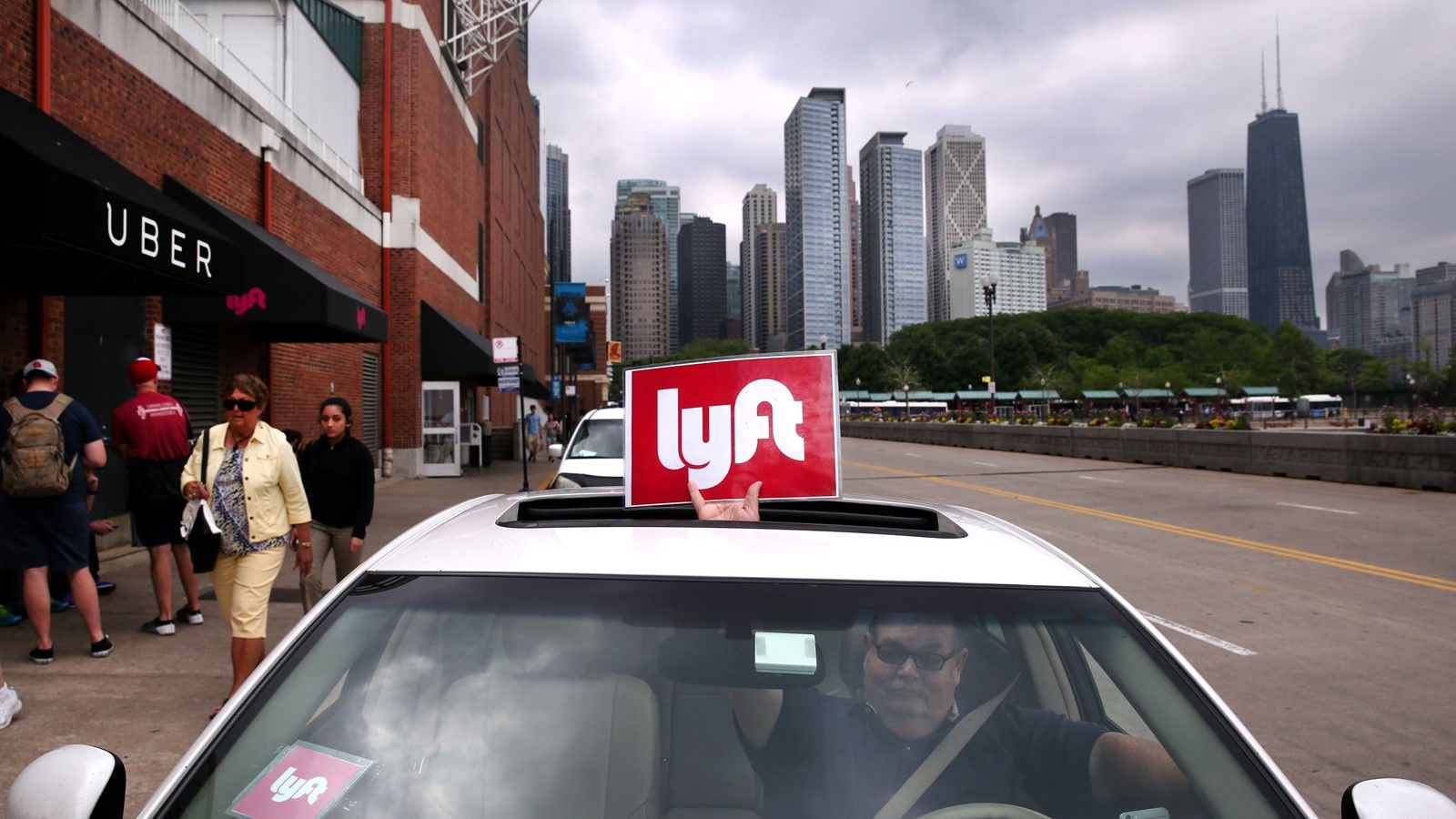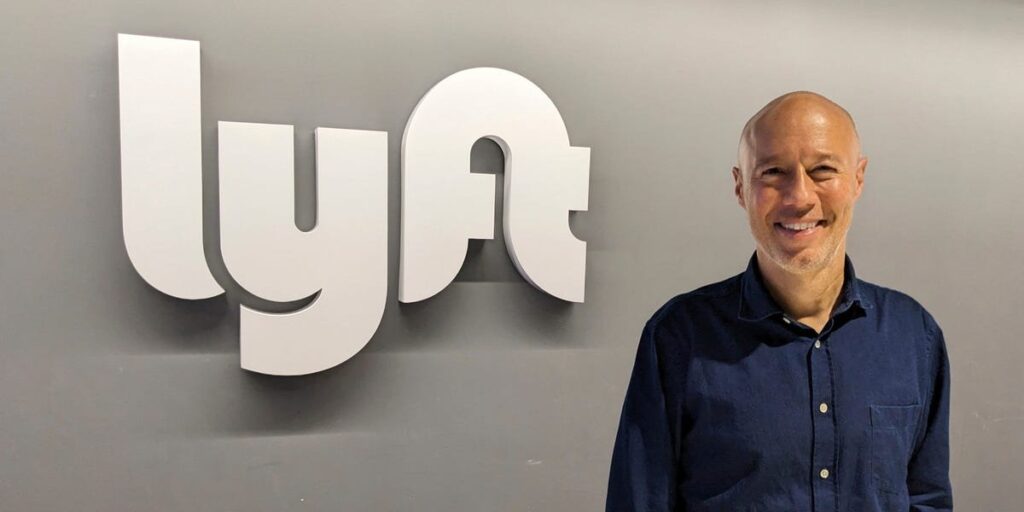David Risher, a seasoned tech executive with roots at Amazon, had an unusually rocky start as the newly appointed CEO of Lyft (LYFT), one of the world’s leading ridesharing companies. In his first week, he declared plans to downsize the company’s workforce, a decision that was swiftly followed by the announcement of layoffs affecting 26% of Lyft’s employees, amounting to over 1,000 job losses.
Risher, in a recent interview with CNN, admitted, “It was a very, very tough decision and a tough, set of days and weeks to go through, of course. Nobody likes it.” However, he justified the decision as a necessary step to strengthen Lyft’s competitive position in a market where it has steadily lost ground since its public debut in 2019.
Lyft, the popular ride-hailing company, has experienced a significant decline in its market value since its initial public offering, losing approximately 90% of its value. The COVID-19 pandemic dealt a severe blow to the transportation industry, and while Lyft’s main competitor Uber has shown signs of recovery, Lyft has faced ongoing challenges, including layoffs and management changes. As part of its efforts to regain momentum, Lyft’s new CEO, Logan Green, who previously worked at Amazon, aims to prioritize customer satisfaction as a key driver for success.
Embracing a customer-centric approach, Lyft recently introduced new features to enhance convenience for travelers during the summer season. One of these features enables customers to pre-order their Lyft rides immediately after their flights land at select airports, such as Los Angeles International Airport and Chicago’s O’Hare and Midway airports. The company plans to expand this service to additional airports in the near future, reflecting its commitment to improving the overall travel experience.
Under Risher’s leadership, Lyft aims to create a business that customers truly love, recognizing the transformative power it can have on the world. While the road to recovery may be challenging, Lyft remains dedicated to delivering excellent service and innovating to meet customer needs, particularly as travel begins to rebound post-pandemic.
Risher seems to draw inspiration from his former boss, Jeff Bezos, emphasizing a stress-free user experience. He told CNN, “You can outsource a lot of that stress to us, that’s what we want to do. And that really is Jeff Bezos. I’m just copying his strategy that worked pretty well for Amazon. I think it can work pretty well for Lyft and our customers.”

However, Risher’s vision for Lyft faces significant challenges. Its primary competitor, Uber, has shown resilience and adaptability in recent quarters, diversifying its services to include meal deliveries, a strategic move that has helped it weather the pandemic and bounce back as the economy reopens. When asked about Lyft’s own diversification strategy, Risher clarified that Lyft’s focus will remain on providing excellent ride-hailing service, rather than branching into other delivery categories.
As the all-important summer travel season approaches, Risher and his team are squarely focused on improving the airport experience for customers. They unveiled another update that allows customers to sync their flight info from their smartphone calendar into their Lyft app, enabling reminders about booking airport rides.
Speculations about Lyft’s future as an independent company were also addressed by Risher, who stated, “It’s not our focus to be part of somebody else’s company.” Instead, he emphasized the importance of choice for riders and expressed a belief that both Uber and Lyft should coexist in the market.
Despite the challenges facing Lyft, Risher remains steadfast in his vision. He aims to leverage his Amazon experience and a customer-centric approach to revive Lyft’s fortunes. However, the journey towards recovery will not be an easy one. There are significant challenges to overcome, not least of which is the stiff competition from Uber, which has managed to gain an edge through diversification and a more robust pandemic recovery strategy.
Risher’s strategy of focusing solely on the ride-hailing service could be a double-edged sword. On the one hand, this could allow Lyft to concentrate on improving its core service and potentially create a superior customer experience compared to its rivals. On the other hand, it may limit the company’s ability to diversify its revenue streams and build resilience against future disruptions.
As the summer travel season approaches, Risher’s immediate priority is to ensure a seamless and stress-free airport experience for Lyft’s customers. The new features unveiled by Lyft under his leadership, such as the airport preorder option and flight info sync, are clear indicators of this strategy. However, it remains to be seen whether these updates will be enough to win over customers and improve Lyft’s market position.
The future of Lyft also hinges on its ability to remain an independent entity. Speculations about a potential sale of the company have been rife, especially in the wake of the recent management changes and layoffs. However, Risher has made it clear that Lyft is not looking to become part of another company. Instead, he advocates for a market where both Lyft and Uber coexist, giving customers the power of choice.
Risher’s vision for Lyft is clear: to provide a superior ride-hailing experience that customers love. Drawing from his early days at Amazon, he is focused on making Lyft a customer-centric company. Despite the setbacks and challenges, Risher’s leadership and his commitment to this vision might just be the key to a new chapter in Lyft’s story.
While it’s too early to predict the outcomes of Risher’s strategies, one thing is clear – his leadership has brought a renewed sense of purpose and direction to Lyft. As he navigates through this challenging period, his ability to inspire his team, satisfy customers, and ultimately revive Lyft’s fortunes will be closely watched by industry experts and investors alike. The journey ahead is uncertain, but it promises to be a compelling narrative of resilience, reinvention, and the relentless pursuit of customer satisfaction.
©world-news.biz
